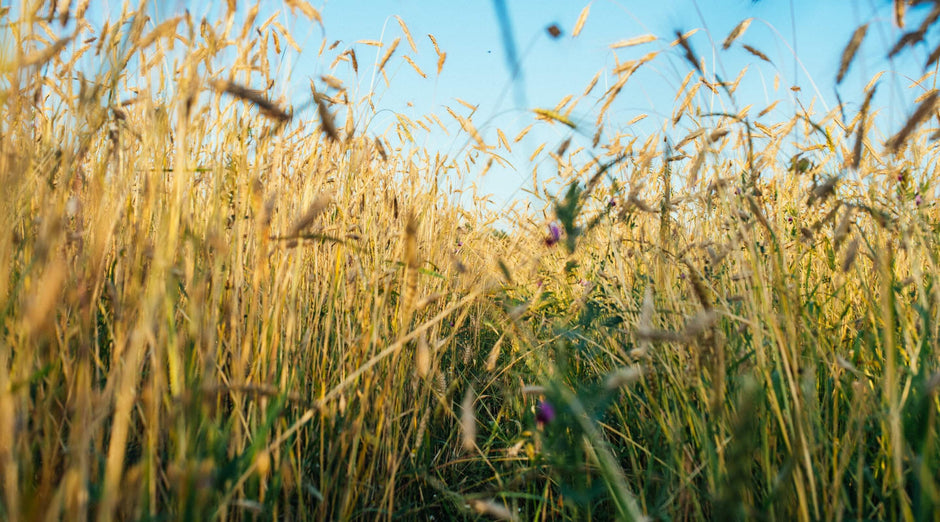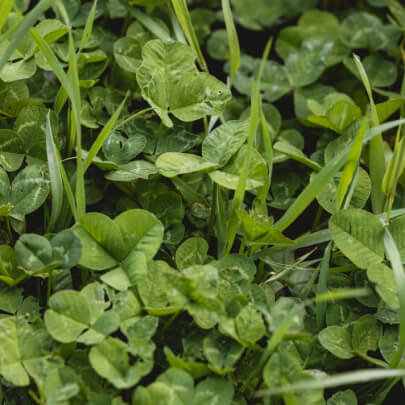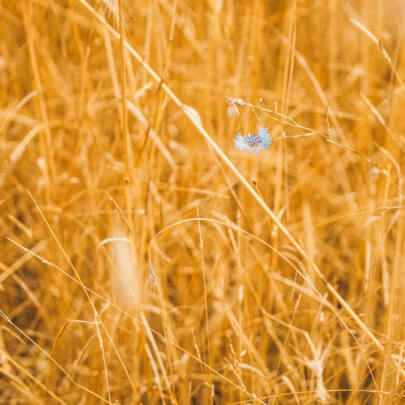
At Fielden, we're pioneering ‘no-chem regen' to produce exceptional distilling grains without destroying the land. Our partner farmers have been at the forefront of this work, growing diverse grains for distilling without the use of any artificial inputs. The results are compelling.
Our no-chem regen method centres on a few key principles:
- growing diverse grains that are adapted to lower nutrient conditions, and more resilient in tricky climates
- establishing a permanent clover understory for natural weed suppression, soil enrichment, biodiversity, and nitrogen release - feeding the crops at key times of the year;
- minimising soil disturbance through reduced tilling and ploughing to maintain soil structure and habitat
- using the same fields year-on-year, building a functional rotation of low-input cereals that can take advantage of the clover understory.
We want everyone to be able to try no-chem regen, so we've developed detailed guidelines for implementing our approach. Read the guidelines below.
We've achieved a 60% reduction in diesel consumption per hectare compared to conventional grain farming. Even with the lower yields that can be expected from heritage grains, this translates to a 16% reduction in diesel per tonne of grain. We are measuring the impact of no-chem regen on soil health and field-scale biodiversity, as well as yield stability, and farmer contentedness. These are all benefits that extend beyond our whisky production.

Happily, our whisky is great too. We were recently voted #36 in the World's Most Admired Whiskies. Not bad for a brand with its heart and its home in the fields - a long way away from the distilleries that are typically the start of any conversation about whisky.
No-chem regen is an evolving methodology, still in its early stages, but its potential is immense. Developed collaboratively with farmers, it represents a viable, sustainable path for grain farming, demonstrating that high-quality cereal production can go hand-in-hand with environmental stewardship. We invite you to explore this exciting new chapter in sustainable agriculture.









